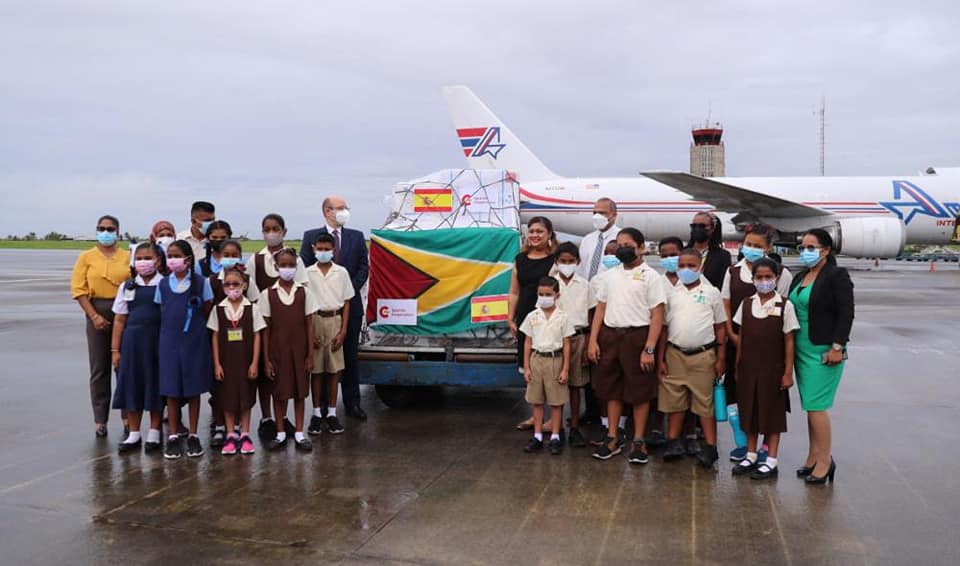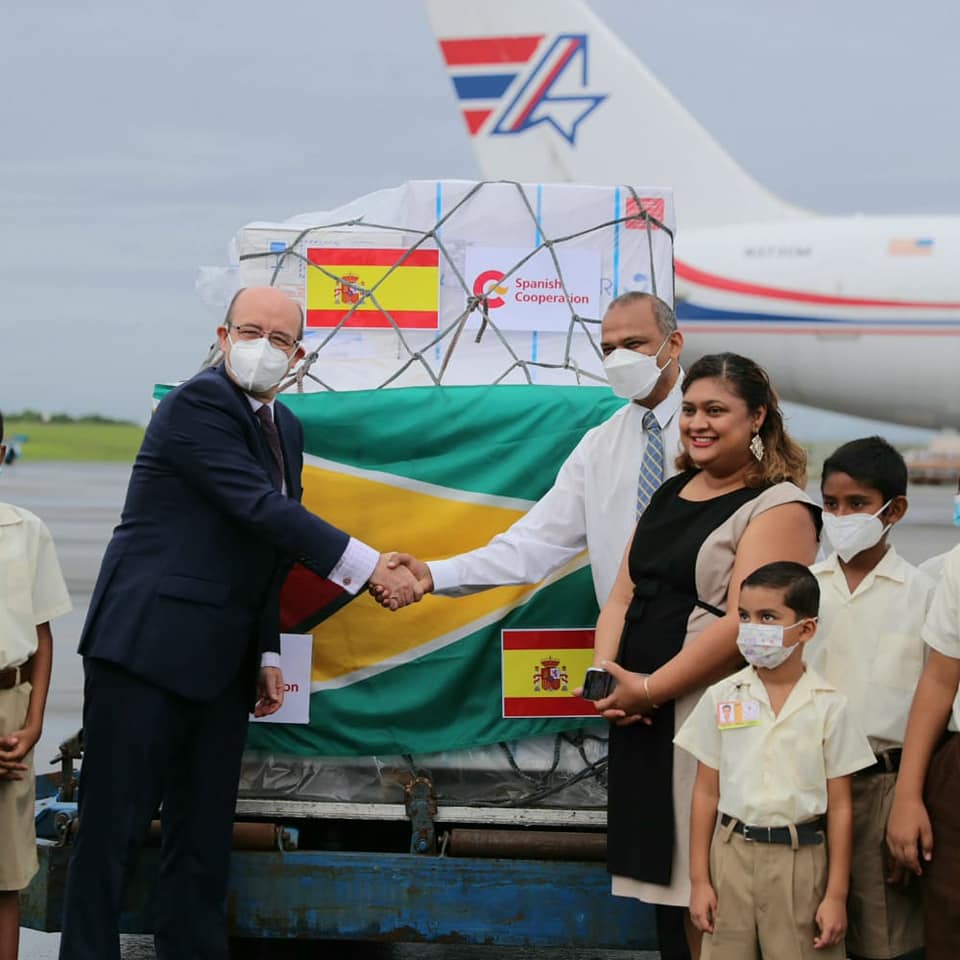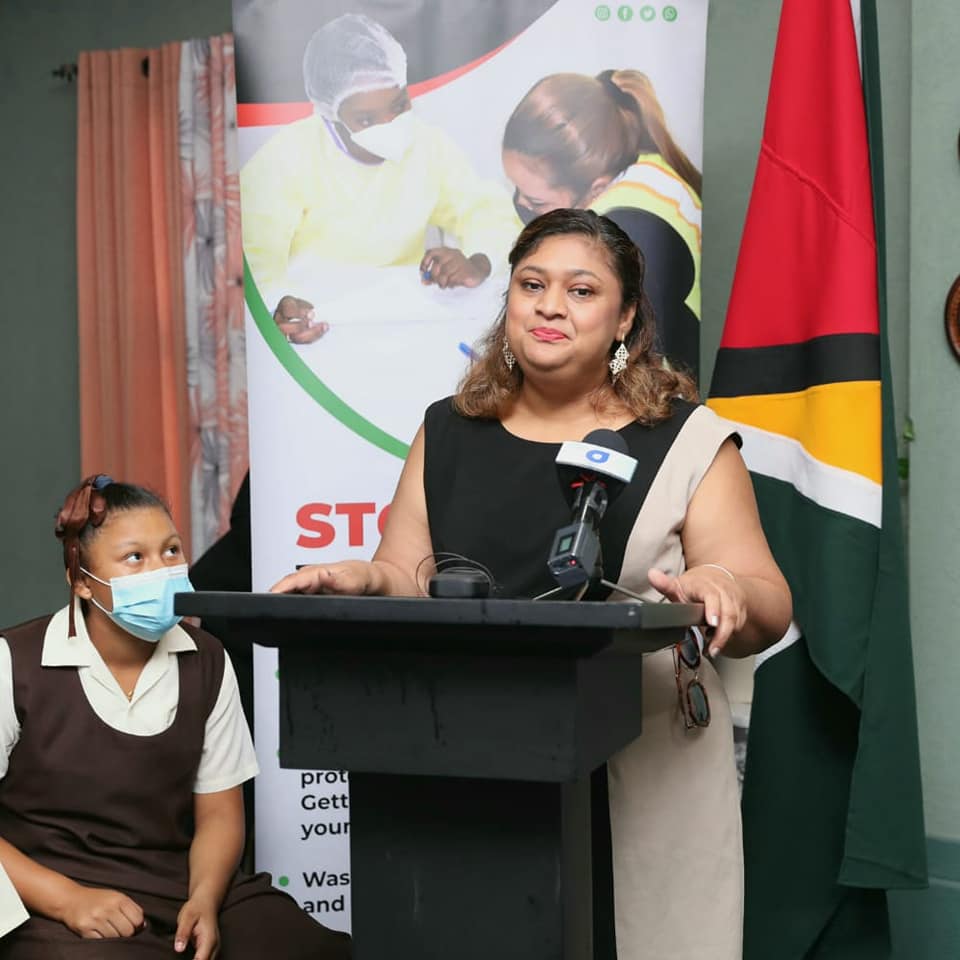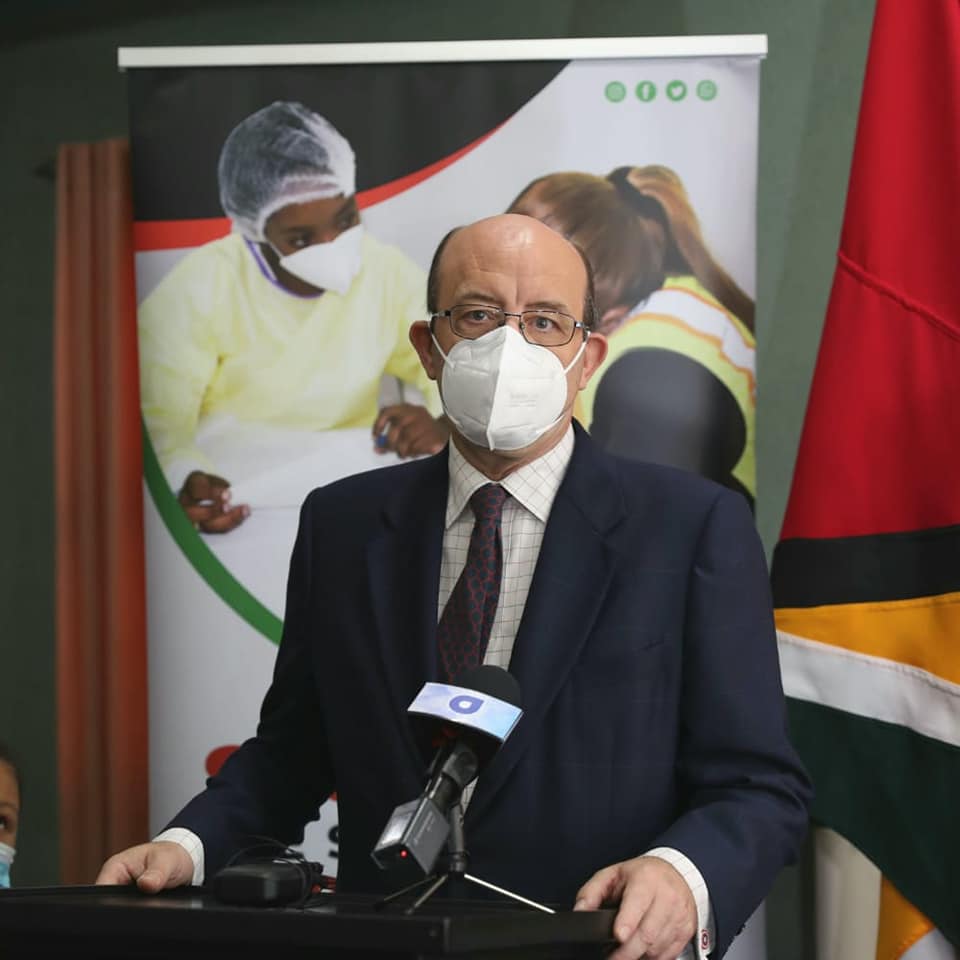
The rollout of the special COVID-19 vaccines for children ages five to 11 will begin on Saturday, June 11, at the National Cultural Centre Tarmac, Georgetown.
Minister of Health Dr Frank Anthony made the announcement during the arrival of 52, 800 doses of the special (pediatric) Pfizer vaccine from Spain at the Cheddi Jagan International Airport on Monday.
Since November 2021, local health authorities have been trying to secure these special vaccines to administer to children.
“There is a myth that children don’t get COVID and when you look at our statistics, about 60,000 people have been infected and about one-third of them were children,” Dr Anthony said.

The Health Minister related that once the vaccine is administered without challenges, the government will procure more jabs.
“Once we see the uptake is good, then we will work with more partners to get more vaccines into the country.”
Minister Anthony said the staff will take a few days to acquaint themselves with how to administer the vaccine safely.
“We have done training with them before but we want to reinforce that training,” Minister Anthony said while extending gratitude to the government of Spain.

Before the vaccine is administered, parental consent is required. Minister of Education Priya Manickchand, who was also present at the airport, said the decision to take the vaccines will remain voluntary but encouraged parents to let their children be vaccinated to keep them safe in school.
“One is less likely to get severely ill if they are inoculated against this disease, most of us want better for our children and I urge you to consider strongly getting your children vaccinated.
“My own children took the vaccine,” Minister Manickchand said.
After the first vaccine rollout on Saturday, Minister Manickchand said they will move to roll it out in schools.
“The vaccines have significantly [reduced] the number of deaths from this disease and even the number of people contracting the disease,” Minister Manickchand related.
Meanwhile, Spain’s Ambassador to Guyana, Fernando Nogales Alvarez revealed that the donation is part of a global effort by Spain to help countries with the ongoing pandemic.

“The first phase of the pandemic was truly hard for Spain and out of that feeling of despair there emerge the need that whenever a solution was ready that we had to share it with those who needed it most,” the Ambassador said during brief remarks.











